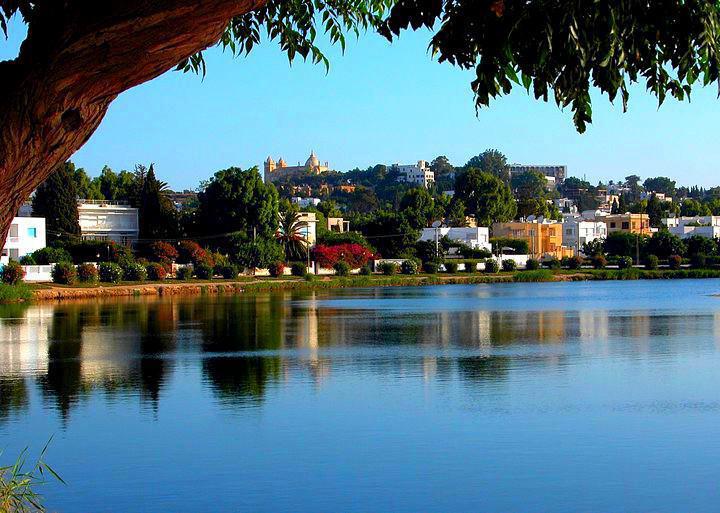Putting its best foot forward – PALU and the promise of a new beginning

The magnificent Ramada Plaza Hotel in Tunisia’s capital city, Tunis played host to lawyers across Africa on 27-29 September 2018 for the ninth annual conference and general assembly of the Pan African Lawyers Union (PALU) whose theme was “One Continent, One People, One Economy: Developing Africa through Continental Free Trade and Movement”.
The conference provided an opportunity to engage some of the continent’s brightest legal minds in conversations organised across PALU’s three sections – Section on Public Interest and Development Law (SPIDEL), Section on Business Law (SBL) and Section on Legal Practice (SLP). Conferees reflected on a range of topics, from illicit financial flows; implementation of decisions of human rights courts and tribunals; the African Continental Free Trade Area Agreement (ACFTA); to the role of women in ACFTA.
The conference climaxed with the election of a new leadership for 2018-2021. After a hard-fought, but peaceful electoral battle, Emeka Obegolu (Nigeria), Kari Abdoul Bagui (Cameroon), Koffi Attoh-Mensah (Togo) and Gigi Reid-Miles (Swaziland) emerged as President, Secretary General, Deputy Secretary General and Treasurer respectively. Other elected officers included Vice Presidents Coco Kayudi (Democratic Republic of Congo – Central Africa), Paul Kaunda (Tanzania – East Africa), Fathia Henhily (Tunisia – North Africa), Gilberto Correia (Mozambique – Southern Africa) and Yaye Mounkaila (Niger – West Africa). The President of PALU’s host bar association, Fatma Karume and PALU Chief Executive Officer, Donald Deya complete the 11-member Executive Committee (EXCOM).
In his post-election speech, Obegolu promised to make the organisation more member-centred and inclusive. He also expressed a desire to embark on constitutional reforms as a tool for re-engineering the organisation and making members feel more invested in its activities. To this end, he announced a proposal by two members to establish an ad-hoc constitutional review committee that will “liaise and consult with the general membership and organs and structures of PALU to develop a new draft constitution or amendments to the current constitution.”
Although PALU went through a constitution review process during the 2018 conference, some members felt it was neither consultative nor reflective of the wishes of the majority of members. As a membership organisation of national and regional bar associations as well as individual lawyers, PALU ought to reflect the diversity of membership in its EXCOM. Under the most recent amendment, only council members – comprising members of EXCOM, one representative each of all regional organisations of bar associations or law societies in Africa, and the immediate past president – can vote to elect the EXCOM. Indeed, until this amendment, members, including life members could not nominate candidates for elective officers. That has changed with the inclusion of a clause allowing five members to nominate candidates.
The current constitution of PALU does not deliberately encourage the participation of women in leadership. Prior to the 2018 conference, the diaspora was also not recognised. Thankfully, the diaspora question has now been addressed with the express recognition of lawyers of African descent in the diaspora as potential members. To be fair, there was a good reason to organise PALU in a particular way at its founding.
PALU was founded in 2002 to replace the African Bar Association. It took a lot of negotiations for bar leaders across the continent to agree to form a unified network of national and regional bar associations and individual lawyers. Given that the bar associations or law societies led the initiative and indeed had the power to keep it going, it was considered necessary to let them have and exercise authority with respect to decisions on the leadership of the organisation. A lot has happened since 2002. The changes in the configuration of PALU – with more individual members emerging and looking to have a voice in the organisation – has now made it imperative to open up the association. There are genuine concerns about the implications of greater inclusion, including the possibility of distorting the parity of membership across countries. These concerns can be addressed through thoughtful constitutional review.
PALU is headquartered in Arusha, Tanzania and managed by a distinguished African lawyer and activist, Donald Deya, who has steered the secretariat through some of its most challenging times. Together with his programme and other staff, Donald takes responsibility for driving the association’s service delivery component. The association’s vice presidents represent the five zones of Africa – Central, East, North, Southern and West – and ought to support the secretariat and association in membership drive and coordination in their regions. Clearly, there is a lot of room for improvement on this score.
PALU life member, Chibuzo Ekwuekuo, has argued that the association could also be attracting law firms as corporate members. This makes a lot of sense given the visibility that the association could provide and business it might be able to drive for the law firms. In return, the association could get mileage in terms of resources – human and material. However, this idea has to be anchored on an acceptable framework.
President Obegolu correctly identifies the most important focus of the organisation – delivering value to its members. Given his previous roles as Vice President, West Africa for PALU and General Secretary of Nigerian Bar Association, Obegolu understands what it takes to deliver value. Members hope he will take the initiative to harness the potential in PALU with a view to repositioning it as the network of choice for lawyers across the continent and beyond.
*Stanley Ibe is a life member of the Pan African Lawyers Union
